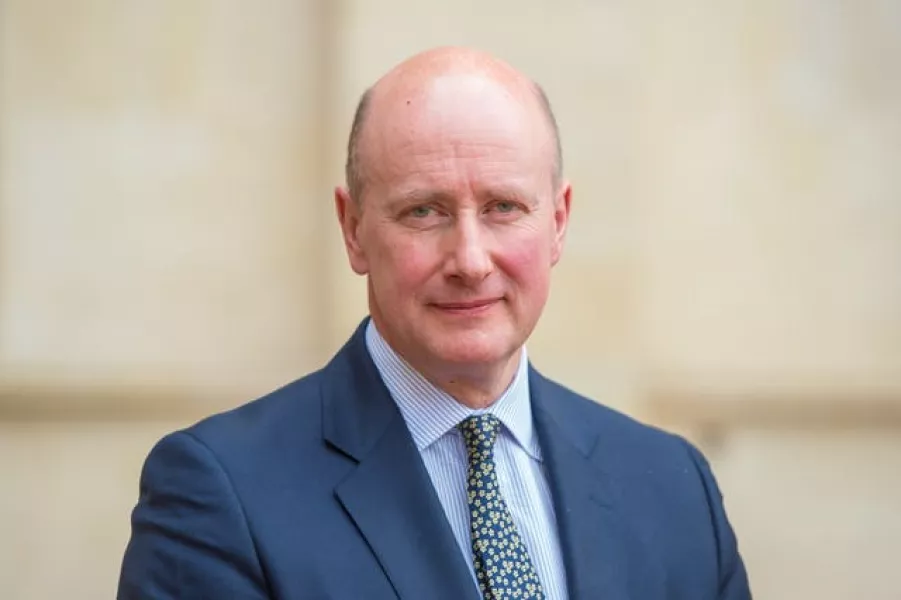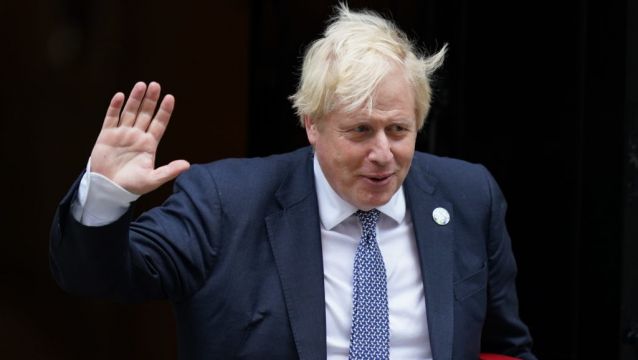The British Labour Party has called for the parliamentary “sleaze” watchdog to investigate whether a Tory donor who helped pay for the refurbishment of Boris Johnson’s Downing Street flat was able to get privileged access to ministers in return.
WhatsApp messages show the British prime minister indicated he would consider a “Great Exhibition 2.0” project backed by Lord Brownlow, who was setting up a charitable trust which was supposed to take over maintenance of the flat over No 11.
It is the latest in a series of calls for inquiries which Mr Johnson and the Tories have faced since he took office in 2019.
The Downing Street flat
In May 2021, Mr Johnson asked his adviser on ministerial interests, Lord Geidt, to investigate claims he had secretly asked Tory donors to foot the £112,000 (€133,895) bill for the lavish revamp which far exceeded the official £30,000 allowance.

Lord Geidt concluded there had been no breach of the ministerial code, although he said the prime minister should have been more rigorous in checking the financial arrangements.
He said when Mr Johnson had finally learned the bill had been settled by the Conservative Party – including with a donation from Lord Brownlow – he reimbursed them out of his own pocket.
However, a further investigation by the British Electoral Commission resulted in the party being fined £17,800 for failing to properly declare a £67,000 donation from a firm controlled by Lord Brownlow.
It also revealed Mr Johnson had exchanged WhatsApp messages with Lord Brownlow in November 2020 which were not disclosed to Lord Geidt when he conducted his inquiry.
Those messages, finally released this week, show that in the same exchanges, Mr Johnson referred to Lord Brownlow’s proposed Great Exhibition 2.0.
Less than two months later, the peer secured a meeting with then culture secretary Oliver Dowden to discuss the idea.
Downing Street said proposal was never taken forward but Labour wants the parliamentary commissioner for standards, Kathryn Stone, to investigate if there was any conflict of interest.
Jennifer Arcuri
Mr Johnson has faced repeated questions over his relationship with the American businesswoman during his time as London mayor.

Ms Arcuri, who has claimed to have had a four-year affair with Mr Johnson, received public grants for her technology business and had access to three foreign trade missions which he led during his time in City Hall.
Mr Johnson avoided a criminal investigation after the independent office for police conduct found no evidence it was as a result of his influence, although it said it would have been “wise” for him to have declared their “close association” as a conflict of interest.
The greater London authority’s oversight committee is now investigating whether Mr Johnson conducted himself in a way that is expected of people in public office.
While any finding that he behaved improperly would be politically embarrassing, the authority has no power to sanction him in any way as he is no longer mayor.
Mr Johnson has denied any wrongdoing.
Greensill Capital
The disclosure that former prime minister David Cameron lobbied ministers and officials in support of the collapsed finance firm triggered a series of inquiries by MPs and other bodies.

The firm’s Australian founder, Lex Greensill, worked as an unpaid adviser to Mr Cameron when he was in Downing Street.
After he left office Mr Cameron was taken on as a paid adviser and used his contacts to send texts and e-mails to chancellor Rishi Sunak and other ministers and senior civil servants urging them to allow Greensill to participate in a government Covid-19 loan scheme for businesses.
A government-commissioned review by lawyer Nigel Boardman concluded Mr Cameron did not break the rules as they stood, but it put forward a series of proposed changes to tighten the system which ministers are currently considering.
In addition, three House of Commons select committees, the committee on standards in public life and the national audit office have all looked at issues raised by the case.
Mr Cameron has acknowledged there are “important lessons to be learned”.
Boris Johnson’s holiday in Mustique
The British prime minister was investigated over who paid for a luxury holiday he took with his then fiancée (now wife), Carrie Symonds in 2019.
The couple were invited to the private Caribbean island by the Carphone Warehouse owner David Ross.
Standards commissioner Ms Stone found he broke Commons rules by having not “fulfilled conscientiously” the requirements for registering the donation.
However, her finding was overruled by MPs on the Commons standards committee, although they said it was “regrettable” that Mr Johnson had taken so long to provide a proper explanation as to what happened.







